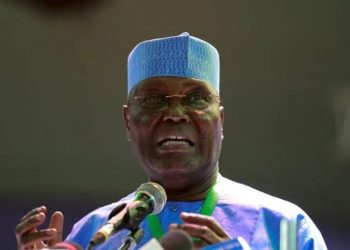A “career-ending” cybercrime case against Senate President Godswill Akpabio has been officially shelved until 2026 after a mysterious courtroom absence buried the explosive trial that alleges a murder plot against a sitting senator.
The Federal High Court abruptly postponed the high-profile trial on Monday after Justice Mohammed Umar unexpectedly failed to appear, reportedly due to an “official assignment.” This convenient delay marks the second time the case has collapsed—first by pro-Biafra protests that locked the courthouse, and now by a judge’s sudden unavailability—fueling allegations that powerful forces are systematically sabotaging the proceedings.

The case centers on Senator Natasha Akpoti-Uduaghan’s bombshell claim that Akpabio and former Kogi Governor Yahaya Bello plotted her assassination. With the prosecution ready to present witnesses and a television screen already mounted in court to display evidence, the defense successfully derailed the trial with a last-minute jurisdictional objection, ensuring the potentially devastating testimony against one of Nigeria’s most powerful men remains sealed for nearly two more years.
Why It Matters
Let’s stop pretending this is about legal procedure. This is a classic Nigerian power play—a case so dangerous to the political establishment that it must be buried by any means necessary. The pattern is unmistakable: first protests conveniently shut down the courthouse, now the judge vanishes. These aren’t coincidences; they are the signature of a system protecting its own.
The defense’s jurisdictional objection is a transparent stalling tactic, and the judge’s absence is perfectly timed to prevent damaging evidence from seeing daylight. Every delay sends the same chilling message to whistleblowers: challenge the powerful, and the entire machinery of state will be weaponized to ensure you never get your day in court. This isn’t justice delayed; it’s justice denied by design, proving once again that in Nigerian politics, some are too big to jail.

















